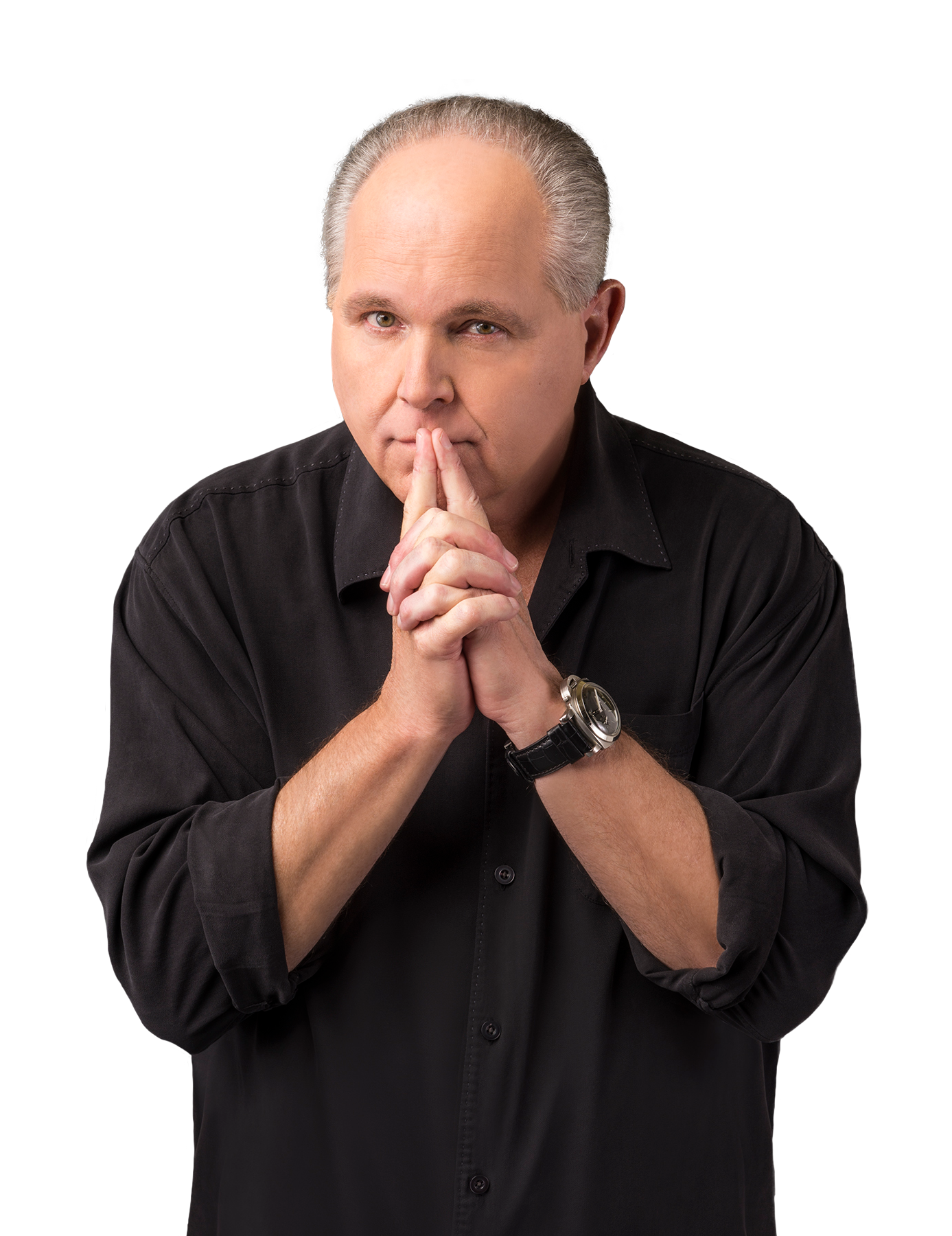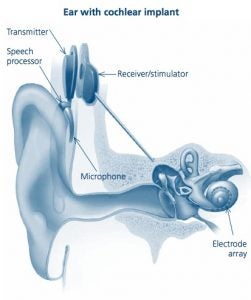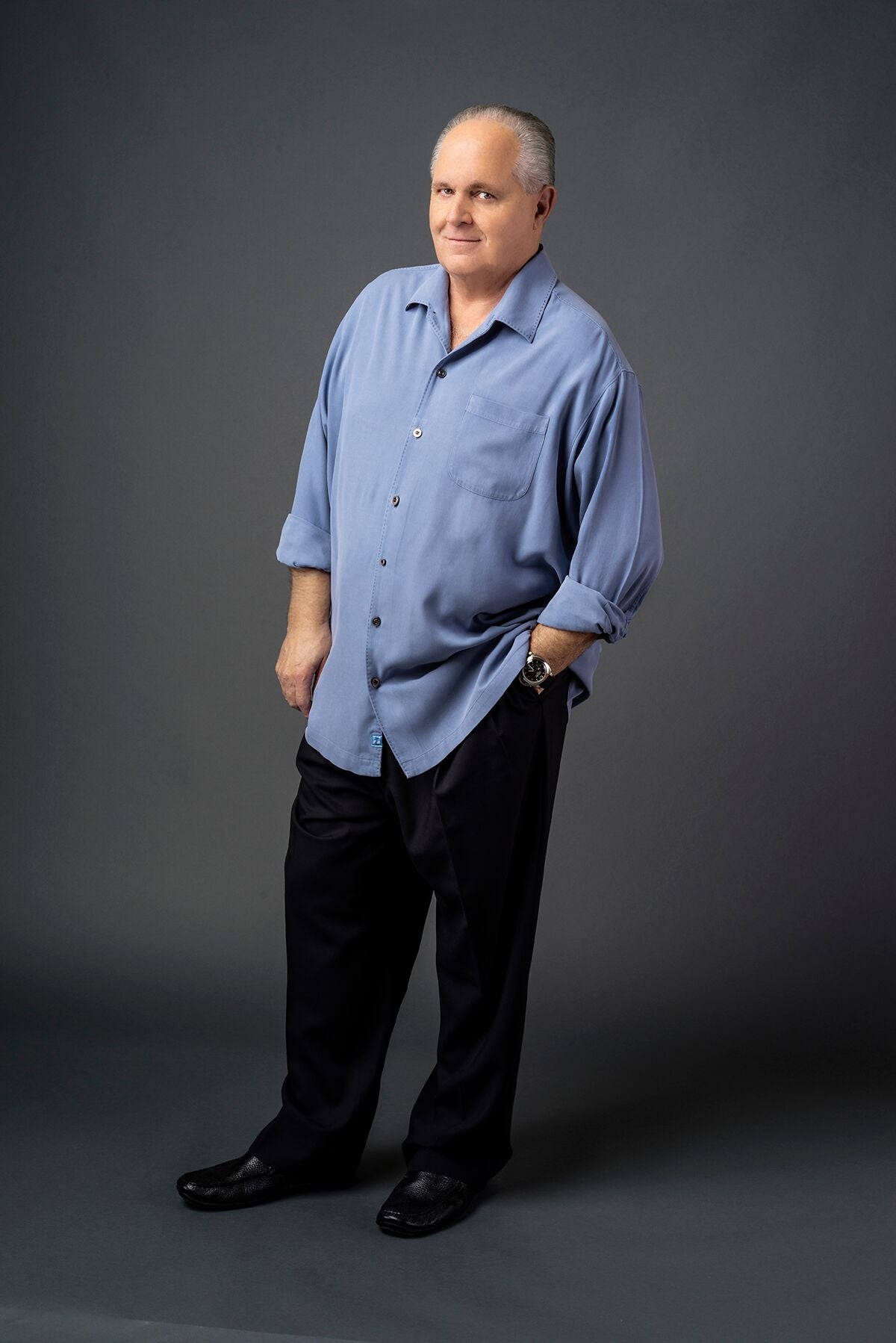RUSH: Here is Shana in Springfield, Oregon. I’m glad you called. Welcome to the program.
CALLER: Hi, Rush. It’s an honor to talk to you.
RUSH: Thank you very much.
CALLER: Thanks for taking my call. I was calling just to say I am so very thankful to you for your Rush Revere books. Um, at the beginning of the school year our son was hit by a drunk driver.
RUSH: Oh.
CALLER: He suffered a real serious skull fracture and he’s had a really long road to recovery, and your books have been such a blessing to our family. He has enjoyed them. He has had to sit still — which he hates to do — but we have helped pass many hours by listening to the books and relistening to them. And he’s gone to sleep listening to them when he’d had trouble sleeping, and I just wanted to say how thankful that we were to you for writing them and for inspiring our children to remember America and to love America.
 RUSH: I just am blown away that you would take the time to call and tell me this… These are really sobering things to hear, and I can’t thank you enough.
RUSH: I just am blown away that you would take the time to call and tell me this… These are really sobering things to hear, and I can’t thank you enough.
CALLER: Well, it gets even better, because he is just an amazing kid. One of the things that has happened as a result of this accident is he’s lost the hearing in one of his ears, and we’ve been hoping and praying as he heals that it would come back, and we found out this week that he’s not ever gonna hear again in that ear (choking up) and he was so sad, and he had a few days of just feeling like it was more than he could handle (crying) and there are just gonna be too many obstacles in life as an adult and as a man.
Of coruse, we kept encouraging him and trying to focus or thoughts on the blessings that we have of still having him with us, and we had the most beautiful lightbulb moment I had to call and share with you. We were talking through these things and there were tears and sadness and all of a sudden he said, “Hey, Mom! Rush has a hearing loss, too,” and I said, “That’s right, Buddy, he does.” And he said, “Nothing stops him from being successful with a hearing loss, so I can be successful, too.” And I just wanted to thank you for being a public figure that can inspire children. I’m very grateful.
RUSH: Wow. You have really reached me here. Whew! This is incredible. Look, I’m going just a few seconds. Can you hang on through the break?
CALLER: Sure.
RUSH: ‘Cause I want to talk to you about your son’s hearing challenges, just some things that I have learned since I lost mine that would be helpful.
BREAK TRANSCRIPT
RUSH: And we are back with Shana in Springfield, Oregon.
CALLER: Hi there.
RUSH: Shana, pardon me? Pardon me? What did you just say? Shana, are you there?
CALLER: I’m here. Sorry. Yes. I’m here.
RUSH: Okay. Good. I just gonna say, you got us crying our eyes out here with this story of what’s happened to your son, and I wanted to talk to you about your son’s hearing loss. How old is he?
CALLER: He just turned 13.
RUSH: And you’ve been told by doctors that he definitely has lost hearing in one ear?
 CALLER: Correct, yes.
CALLER: Correct, yes.
RUSH: And it’s not retrievable?
CALLER: Permanent nerve damage.
RUSH: Permanent nerve damage.
CALLER: Yeah.
RUSH: So he has no residual hearing whatsoever?
CALLER: No. He can hear some sounds, like screeching kind of sounds. And he can hear some sounds, that, if they’re super magnified he can hear them, but not in any kind of a normal range.
RUSH: So does he know when somebody’s talking to him in that ear?
CALLER: No.
RUSH: Can he hear shower water, like water running in the shower, any sounds like that?
CALLER: The only sound he says he hears are like shrieking sounds and ringing sounds in that ear.
RUSH: That may be tinnitus, however you pronounce it. Look, I lost my hearing in both ears in 2000, and mine was an autoimmune attack, and I use cochlear implants. But things have advanced so much. I was zero, too, I mean, literally nothing. I didn’t even hear screeching or any of that. I mean, a nuclear bomb could go off and I wouldn’t hear it if I weren’t wearing my cochlear implants.
They have gotten so much better. You know, I only had one ear done initially, and I had the second ear done two or three years ago, and it’s just made a huge world of difference. Your son will be able to regain hearing in his ear. It will be bionic or electronic of some kind. I don’t want to supersede what doctors have told you, but there are all kinds of possibilities.
 CALLER: Right. I think he’s gonna have to get a hearing aid. That’s kinda what we’ve come to understand —
CALLER: Right. I think he’s gonna have to get a hearing aid. That’s kinda what we’ve come to understand —
RUSH: There’s nothing to fear, whether it’s a cochlear implant — you can tell him that people think I am a spy and a secret agent because they think the implants I’m wearing in my ear are secret communication devices to powerful people in the CIA or something.
CALLER: That’s what he said. “Do I have to get the kind like the CIA, Mom?” I said, “I don’t think so, buddy, but that would be cool.” (laughing)
RUSH: Well, you know, something I never had a problem with, and it differs from person to person, I never had a problem with the way they make me look. For me being able to hear was — if I couldn’t, I couldn’t continue to work, so I didn’t care what it took. I don’t have vanity in that regard. It doesn’t change your appearance anyway except from the side. To me it’s not a factor. Other people have, you know, different concerns.
But the thing that I think you can be very confident of — look, I’m not trying to supersede doctors, I don’t know the nature of your son’s medical condition in his ear, but even for people that have lost it all like I did, my audial nerve was still functioning enough to be able to carry information. Mine gets generated by bionic electrodes that are implanted in my brain rather than by the hair cells that everybody else hears with.
CALLER: Right.
RUSH: They’re microscopic and there’s hundreds of thousands of them in the ear, and those hundreds of thousands have been replaced by essentially eight electrodes. So he’ll be able to function and get by. Just tell him it’s not something to fear.
CALLER: Right. I was just so blessed that he was inspired by you and he had that moment of himself being like, “Hey, wait a minute. Instead of me looking at this as something that is gonna stop me from doing what I want to do, look at Rush, nothing stopped him, he’s so successful. Mom, I’m gonna be okay.”
RUSH: Let me tell you something, honestly. That’s just incredible. I am so happy that he was informed enough to draw that conclusion and some inspiration from it, because I never hear that. I never hear that at all. And I think it’s political in nature —
CALLER: That’s why I wanted to tell you.
RUSH: That is dramatic, that is profound, and I can’t tell you — I mean, that almost makes losing my hearing worth it, if it’s providing inspiration to your son to withstand what happened to him.
CALLER: Thank you. I just thought it was amazing that you’ve done something so great with Rush Revere and that impacted him in such a way that your own personal struggles became an inspiration to him, which was wonderful to me.
RUSH: Well, I tell you what I want you to do. When we hang up here I want you to stay on the line, and we want to send — what is your son’s first name?
CALLER: His name is Noah.
 RUSH: Noah. Okay. We want to send him some little goodies from the Rush Revere time-travel adventures world, and a couple of other things.
RUSH: Noah. Okay. We want to send him some little goodies from the Rush Revere time-travel adventures world, and a couple of other things.
CALLER: He’ll love that.
RUSH: I really appreciate this. And, you know, you’re inspiring in your own way because this all happened because of a drunk driver. And I’m sure you questioned, “Why us? Why this?” You went through stages of anger and then you finally had to deal with it. It doesn’t sound at all like you have any bitterness about this at this stage, and that’s a true testament to you.
CALLER: Well, it’s something that I definitely wrestle with, but it isn’t something that I want to define my son’s life, so we have to learn how to move past it.
RUSH: Well, that’s great. You can’t believe how mature that is. When you say it’s not something you want to be defined by, you’re refusing to be a victim. And I can’t tell you how wonderful that is. I cannot tell you. Just for you and for Noah, to not look at this as making you both victims, that’s gonna mean so much as you go forward, I can’t tell you how much, but that’s fabulous.
CALLER: Well, I just wanted to thank you from the bottom of our hearts for your books and just tell you what a special place you have in our hearts.
RUSH: Well, you have a place in ours as well, and we want to, in a small, little token type of way show you that, so hang on so we can get your address.
CALLER: Okay, thank you, Rush.
RUSH: You’re welcome.
CALLER: Thank you for all you do.
RUSH: I’m really grateful that you were able to get through today. All the thousands of people trying to call here, you made it through. So I appreciate that, too.
CALLER: Thank you so much. You have a great day.
RUSH: You do the same.
BREAK TRANSCRIPT
 RUSH: Hey, Shana? One more… I don’t know. Call it piece of advice or just a thought that I meant to share with you that slipped my mind because I was so moved by what you had said. What I have found is that hearing loss, hearing challenge, deafness, whatever, is the only disability where the person suffering from it is blamed. And by this I mean if you see somebody who cannot walk, in a wheelchair, you never say, “I know you can walk. Get up! Don’t make us push you around all day.”
RUSH: Hey, Shana? One more… I don’t know. Call it piece of advice or just a thought that I meant to share with you that slipped my mind because I was so moved by what you had said. What I have found is that hearing loss, hearing challenge, deafness, whatever, is the only disability where the person suffering from it is blamed. And by this I mean if you see somebody who cannot walk, in a wheelchair, you never say, “I know you can walk. Get up! Don’t make us push you around all day.”
If you run across somebody who’s blind, you don’t say, “Just try harder! I know you can see. You’re just faking everybody out.” But when people who have hearing loss, it’s amazing, because nobody… You can imagine being blind; you can close your eyes and you can it. You can imagine not being able to walk and not. Hearing loss, you can’t imagine. You cannot create deafness. You can cover your ears, you get plugs, you can get whatever, but you can hear some. You cannot imagine total deafness, and people who can hear cannot relate to people that can’t.
I mean, I myself am guilty of this. My father, late in his life, was losing his hearing, and we just got sick and tired of him saying, “What? What?” And we just said, “He’s not even trying to hear. He’s not even trying to listen.” And you have since learned that it actually is the case. People think that if you just try harder, if you just pay more attention to them, if you weren’t looking around elsewhere while they’re speaking, or if you were whatever, that you could hear what they’re saying, and then there are times where you can hear them and people think you can’t.
“See, I know you can hear! I know you can hear! You’re just faking it. You’re just using it to not have to talk to us.” I’ll give you an example: There is a place, one of the golf clubs that I go to, with a giant restaurant. And that room can be empty with just us at a table for four, and that room sounds like a thousand people are in it to me. For the longest time, it was frustrating ’cause I literally couldn’t talk to people at my table and we were the only ones in there, and I looked around and it was the noise being made by the bartender just putting ice in glasses and clinking silverware around and moving bottles and stuff.
The acoustics of that bar were making that room to me sound like a thousand people were in it. And if I took out my implant on my right side, it went away, and I was able to converse with people at the table. But they couldn’t relate to it. “What do you mean you can’t hear? We’re the only ones in here.” They didn’t hear the noise at the bar the way I did, the way my implants were making it sound to me. But it is the case. It’s the only disability where — and it’s not people trying to do it. It’s just they can hear and can’t relate to not being able to. And so that’s something to warn your son of, Shana, to be patient with people, because they can’t relate to it.
And he can hear in one year anyway.
That’s half the battle.


